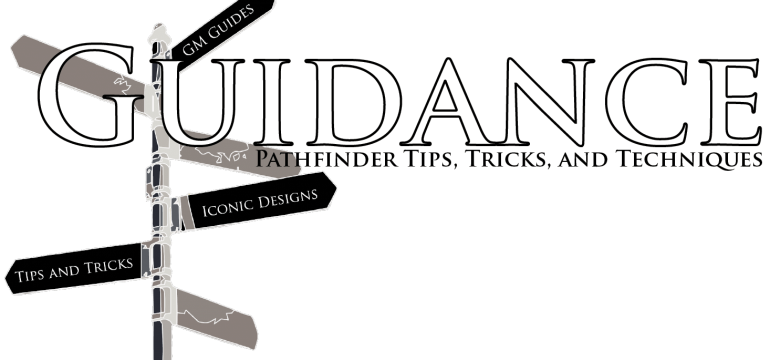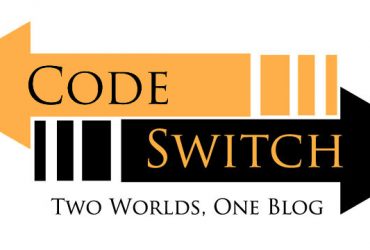If you’ve been following the Know Direction blog scene for the past few months (and if you haven’t, why aren’t you?!), you’ll likely know that we have a blog called Code Switch, and its author, James Ballod, is an IRL friend of mine. In fact, we play in a Reign of Winter game together, where I play Zanzo Xitan, a Varisian kitsune bard who left home trying to fulfill his recently deceased father’s dreams of traveling around the Inner Sea Region. Zanzo was heading to Oppara to see the bardic collages, but he never made it there. Instead, he got swept up in the Reign of Winter Adventure Path!
Now, in my mind, Zanzo is a good person, but he’s not a hero. He’s cowardly, and after he died the first time he definitely has a self-preservation streak that he only sometimes puts aside for his friends. (“It’s okay! As long as you can hear me singing you get buffed. I don’t need to be there!”) He’s definitely gone from a wide-eyed naïve 19-year old to somewhat of a pessimistic who puts his survival first, and their mission (saving Golarion from an eternal winter) second. But this was a slow change that I wanted to do via roleplay, and if your group is like mine, we all want to get to the story. Not sit around and talk to each other for hours without getting things done. (In fact, in my experience trying to get your entire group to sit and do nothing but roleplay for hours on end if the group doesn’t want that is the best way to annoy your group AND burn yourself out on the game.)
So, if you’re not sitting around chatting by the fireside, then how DO you roleplay your character? Simply put, you make it the side dish, not the main course.
Injecting Roleplaying in Everything You Do
Your character doesn’t stop being a unique individual just because combat’s started or the dice are rolling. Oftentimes what I do (and what I did with Zanzo) is roleplay while the action is happening, and there are plenty of subtle ways you can do that. Here’s a few of my strategies:
- Roleplay Every Check You Make: Hey, you have skills, right? Whenever you make a skill check, add a little flavor to it. Describe not only what your character does, but how they do it. For example, I roleplay Zanzo as a coward who is primarily worried about not dying (again). One of the ways I emphasize Zanzo’s character is in how I roll Knowledge checks to identify creatures. When I ask questions, I ALWAYS ask for questions in ways that emphasize Zanzo’s cowardice, growing pessimism, and fear of getting killed again. Here’s an example: GM: “This is a devourer, and you get two pieces of information about it.” ME: “What is the absolute most terrifying thing that the monster could do to me in a dark alley?” This emphasizes Zanzo’s paranoid and gives me a fun way to rely the information to the other players in the party. “That thing will suck the life from your body through its fingers!”
- Banter In-Character: Games like Pathfinder are a social experience, and as a social experience, you and your friends are going to talk about stuff. When you do, try to socialize with your friends in-character. For example, when I joke on Zanzo, I try to always joke about subjects Zanzo would be able to joke about, and do so in-character with the other players at the table. For example, when we’re joking about how our kathasa bow nomad PC, Armored By Distance, is indiscriminately murdering fey creatures, we make sure to (jokingly) call her out on her indiscriminate racism in-character. When we’re sitting at the table, we’re joking and having a good time, but we’re also socializing and being silly together in-character. That sort of banter is what makes characters feel real—no well-written character is a pile of serious Lawful-Good (or comparable alignment) angst all the time.
- Make Mechanics Support Personality: Another way we “roleplay” our characters is through our ability choices. Every character in our party has abilities that reflect their personality and values, even if they aren’t always the most optimized choices. For example, Zanzo doesn’t want to get beat up, so he’s mostly ranged and he buffs other people to fight for him. Armored By Distance is a bow nomad scavenger, so she makes traps and her own arrows. Raynard (James’s character) is a bit of a self-sufficient type, so he has tons of mechanics designed to allow him to sneak attack without needing an ally’s support. (He has things that let him snipe, hide in plain sight, can sneak attack while moving and charging plus Spring Attack, and so on.) If you build your character’s personality to support their mechanics (or vice versa), you can literally make every action you take or don’t take indicative of that character’s thoughts and values.
- Use Failures as Well as Successes: One REALLY good trick I’ve learned to roleplaying is to roleplay your failures as well as your successes. Whenever I miss with an attack roll, fail a skill check, roll low with an initiative check, I always try to roleplay why the result happened using what’s going on around me. For instance, if I rolled low for initiative, clearly my character didn’t think a fight was going to break out, and was surprised. If there was a surprise round, maybe something that happened distracted me from reacting sooner. If I missed an attack roll the turn after my friend took major damage, maybe I was too worried about that person and lost focus. Roleplaying both when you succeed AND fail makes for a good character, because real people fail just as often as they succeed; maybe more so. But how you react to failure is just as telling, maybe more so, as how you react to success. Capitalize on it.
Those are just a few of the tricks that James, our friends, and I use to roleplay without dedicating large swaths of time to roleplaying. Ultimately, roleplaying works better when you stop seeing roleplaying as a separate part of the game that you just “turn on.” Roleplaying should be something that you are doing all the time when you’re sitting down to play. Since roleplaying is literally living and acting as another person, everything attack you make or don’t make, every spell you cast or don’t cast, every skill check you make or fail, they should all be woven together to make your character who he or she is.
So until next time, I’m Alex Augunas and I’m always here for YOU when you need a little bit of Guidance. Take care!
Alexander “Alex” Augunas has been playing roleplaying games since 2007, which isn’t nearly as long as 90% of his colleagues. Alexander is an active freelancer for the Pathfinder Roleplaying Game and is best known as the author of the Pact Magic Unbound series by Radiance House. Alex is the owner of Everyman Gaming, LLC and is often stylized as the Everyman Gamer in honor of Guidance’s original home. Alex also cohosts the Private Sanctuary Podcast, along with fellow blogger Anthony Li, and you can follow their exploits on Facebook in the 3.5 Private Sanctuary Group, or on Alex’s Twitter, @AlJAug.






